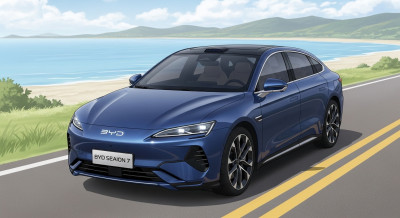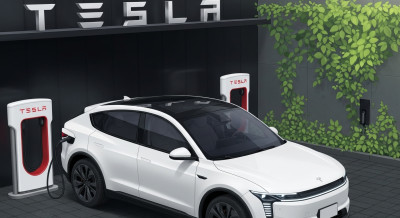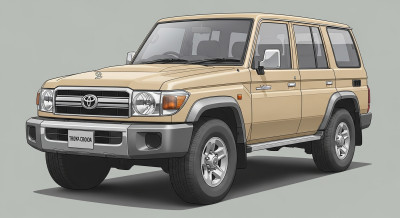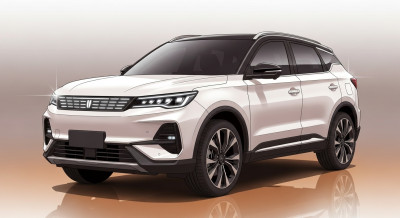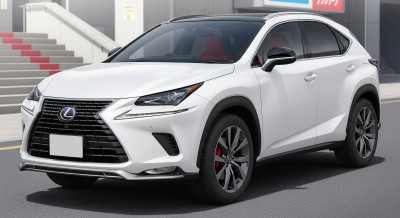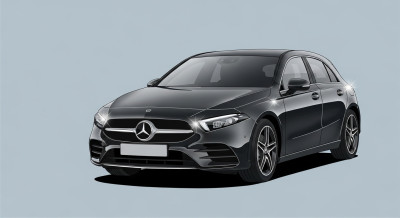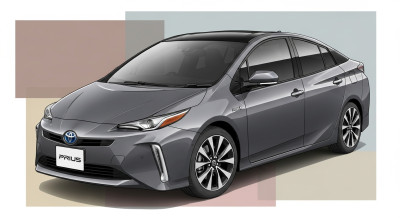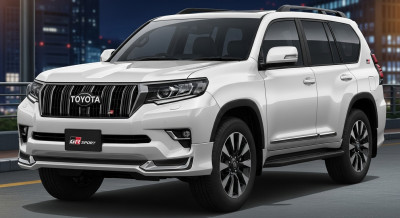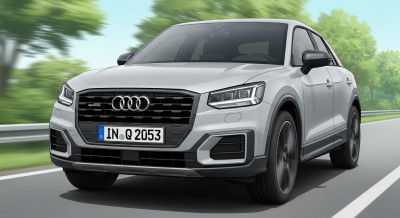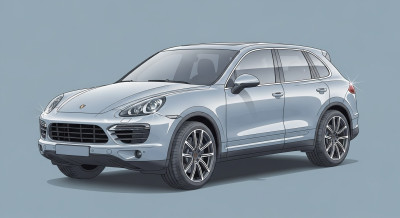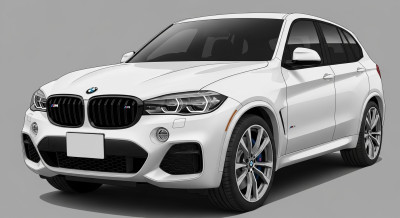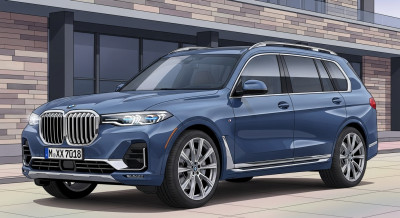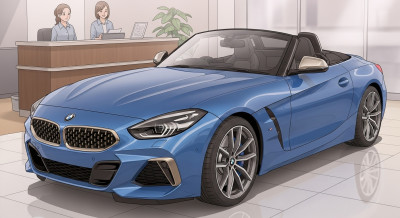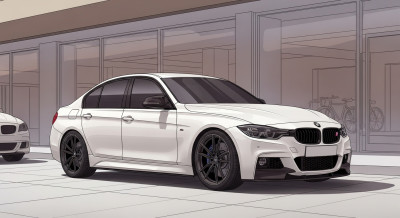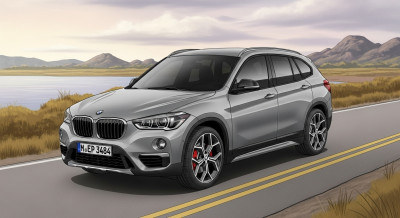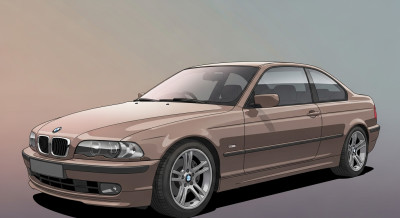Mercedes V-Class (2025) - Perfect Luxury Family VIP!
Thanks: MB Lukavto
https://www.instagram.com/mb_lukavto
https://mb-lukavto.ru/
What is it like to drive?
It’s at this point the van-based underpinnings quickly reveal themselves. Guiding the V-Class around town at even low speeds, it’s far from the smoothest ride, bouncing and crashing along with any imperfections in the road ricocheting through the cabin. Not great.
Still, piloting it through even congested city streets is a doddle, largely because the steering is light and accurate. Visibility is predictably excellent because you sit nice and high: it's easy to forget you have another three metres of car behind you. But drive this and the VW Multivan - which is based on the same platform that underpins the likes of the Golf and Tiguan - back to back and the difference is night and day.
It’s slightly better at motorway speeds, where the roads are generally smoother and wind and road noise are kept to a minimum. A good taxi hauler, in other words. Just remember to slow down a smidge to avoid throwing your passengers about.
Not brilliant. What about the engines?
There are two to choose from: well, one engine, two power outputs. It's a 2.0-litre four-pot diesel (yours in V220d and V300d guises) with a nine-speed dual-clutch automatic gearbox.
The V220d is tuned to produce 161bhp and 280lb ft of torque. It's a bit grumbly, and if you push it – which you’re regularly required do considering the V-Class’s sheer heft – it makes its presence felt. Not the noise you would associate with a Benz, even if it is a van.
Is the V300d any better?
It feels the better fit. It makes a healthy 234bhp and 368lb ft, and that extra grunt means you don’t have to push it so hard. It still has the familiar diesel grumble, but it’s generally that little bit quieter as you cruise around.
In standard wheelbase guise you’re looking at 0-62mph in 11 seconds and a top speed of 121mph in the V220d, compared to 7.8 seconds and 136mph in the V300d. There’s plenty of low down torque and it doesn’t feel too sluggish as you pull away from the traffic lights, which is at least a positive.
The nine-speed auto 'box also shifts smoothly enough, but the slightly spongy brakes - which only bite about halfway down the pedal travel - could be better. Merc’s active brake assist could do with being a little less sensitive, too.
What about eco smarts?
Merc claims up to 40.9mpg for the V220d, and up to 39.2mpg for the V300d. We saw 35mpg on an extended run in the latter, but that was taking in a fair amount of stop-start London traffic. If you’re regularly going to be doing motorway miles – to Heathrow, for example – you can expect slightly better.
Meanwhile, count on 182-225g/km for the V220d and 189-229g/km CO2 emissions for the V300d. Yeah, this isn’t one for the cheap company car buyer remit.
Read More https://www.topgear.com/car-reviews/mercedes-benz/v-class/driving
Instagram ▶ https://www.instagram.com/cartvpress
TikTok ▶ https://www.tiktok.com/@cartvpress
Facebook ▶ https://www.facebook.com/CARTVPres
Thanks: MB Lukavto
https://www.instagram.com/mb_lukavto
https://mb-lukavto.ru/
What is it like to drive?
It’s at this point the van-based underpinnings quickly reveal themselves. Guiding the V-Class around town at even low speeds, it’s far from the smoothest ride, bouncing and crashing along with any imperfections in the road ricocheting through the cabin. Not great.
Still, piloting it through even congested city streets is a doddle, largely because the steering is light and accurate. Visibility is predictably excellent because you sit nice and high: it's easy to forget you have another three metres of car behind you. But drive this and the VW Multivan - which is based on the same platform that underpins the likes of the Golf and Tiguan - back to back and the difference is night and day.
It’s slightly better at motorway speeds, where the roads are generally smoother and wind and road noise are kept to a minimum. A good taxi hauler, in other words. Just remember to slow down a smidge to avoid throwing your passengers about.
Not brilliant. What about the engines?
There are two to choose from: well, one engine, two power outputs. It's a 2.0-litre four-pot diesel (yours in V220d and V300d guises) with a nine-speed dual-clutch automatic gearbox.
The V220d is tuned to produce 161bhp and 280lb ft of torque. It's a bit grumbly, and if you push it – which you’re regularly required do considering the V-Class’s sheer heft – it makes its presence felt. Not the noise you would associate with a Benz, even if it is a van.
Is the V300d any better?
It feels the better fit. It makes a healthy 234bhp and 368lb ft, and that extra grunt means you don’t have to push it so hard. It still has the familiar diesel grumble, but it’s generally that little bit quieter as you cruise around.
In standard wheelbase guise you’re looking at 0-62mph in 11 seconds and a top speed of 121mph in the V220d, compared to 7.8 seconds and 136mph in the V300d. There’s plenty of low down torque and it doesn’t feel too sluggish as you pull away from the traffic lights, which is at least a positive.
The nine-speed auto 'box also shifts smoothly enough, but the slightly spongy brakes - which only bite about halfway down the pedal travel - could be better. Merc’s active brake assist could do with being a little less sensitive, too.
What about eco smarts?
Merc claims up to 40.9mpg for the V220d, and up to 39.2mpg for the V300d. We saw 35mpg on an extended run in the latter, but that was taking in a fair amount of stop-start London traffic. If you’re regularly going to be doing motorway miles – to Heathrow, for example – you can expect slightly better.
Meanwhile, count on 182-225g/km for the V220d and 189-229g/km CO2 emissions for the V300d. Yeah, this isn’t one for the cheap company car buyer remit.
Read More https://www.topgear.com/car-reviews/mercedes-benz/v-class/driving
Instagram ▶ https://www.instagram.com/cartvpress
TikTok ▶ https://www.tiktok.com/@cartvpress
Facebook ▶ https://www.facebook.com/CARTVPress
 LEXUS
LEXUS  AUDI
AUDI  PORSCHE
PORSCHE  ROLLS-ROYCE
ROLLS-ROYCE  LAND ROVER
LAND ROVER  FERRARI
FERRARI  MASERATI
MASERATI  CADILLAC
CADILLAC  CHRYSLER JEEP
CHRYSLER JEEP 















